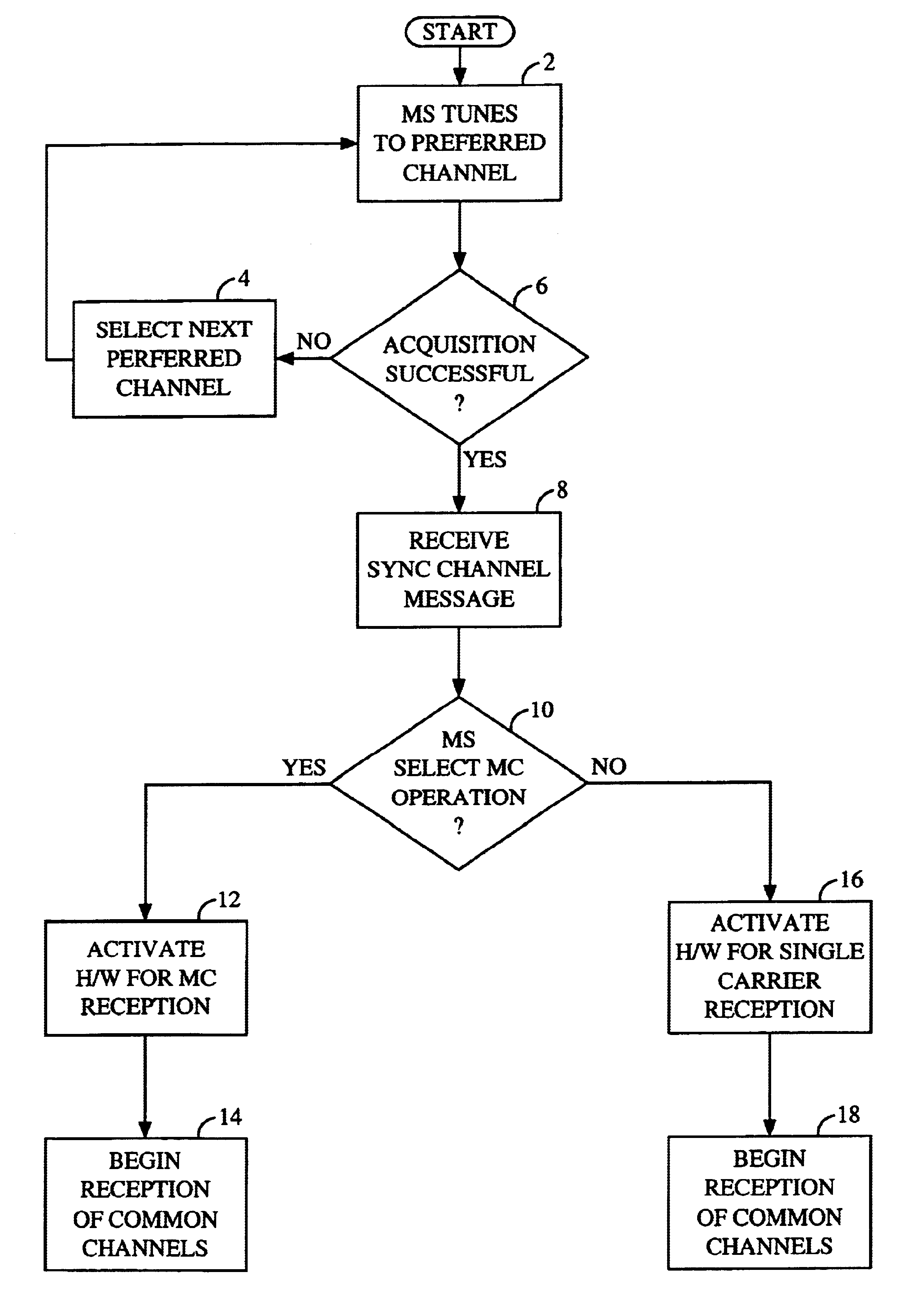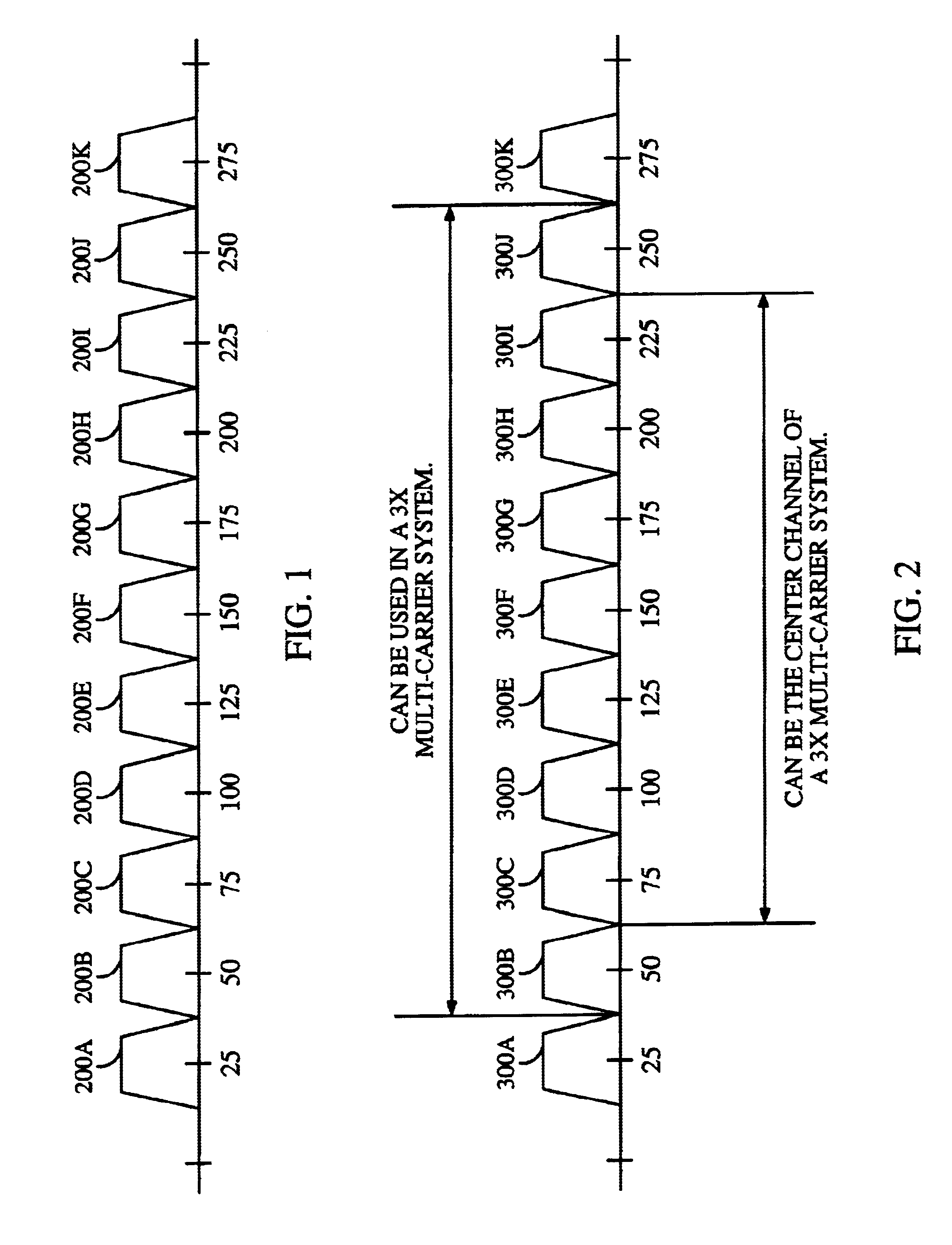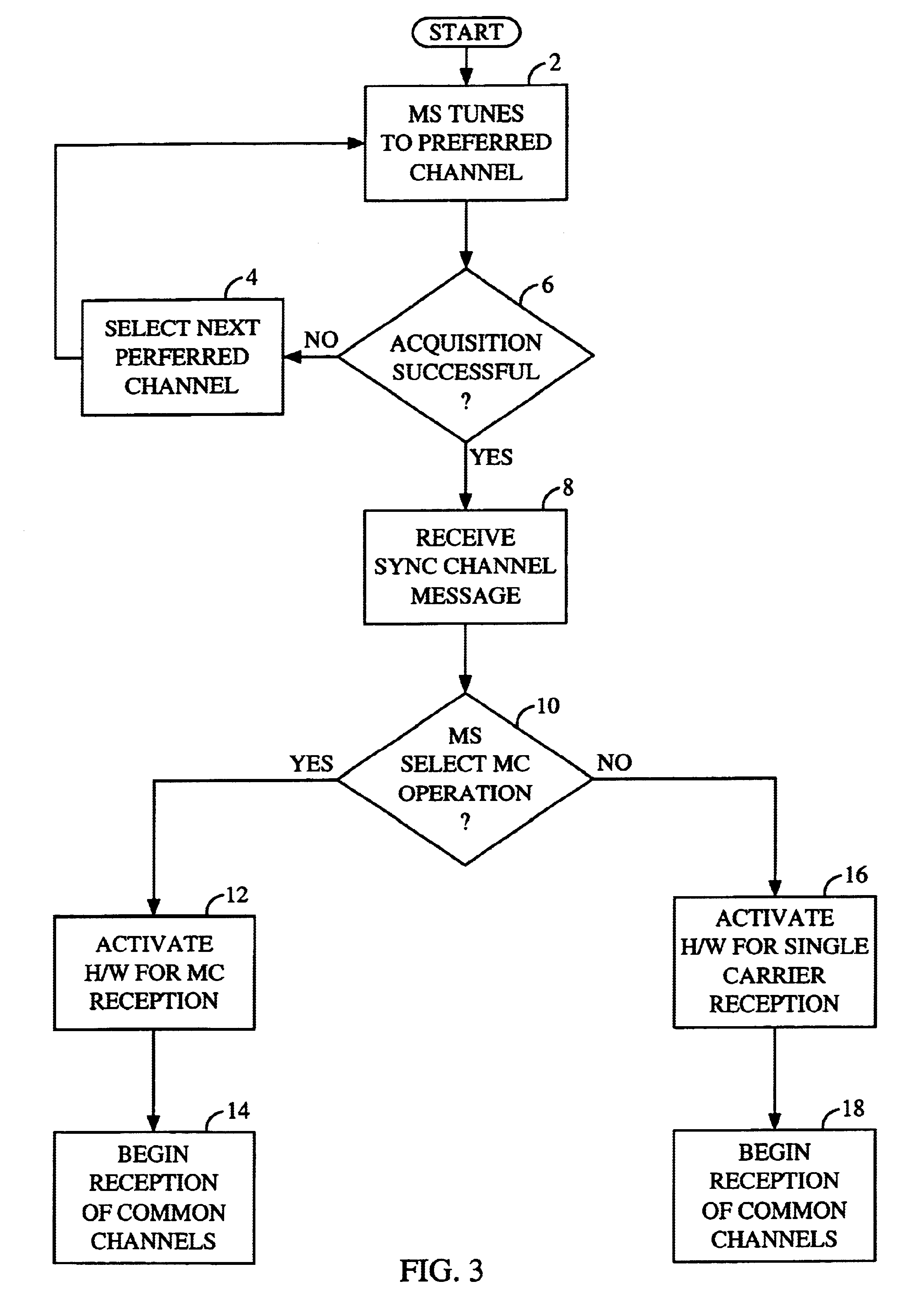Configuration of overhead channels in a mixed bandwidth system
a mixed bandwidth and overhead channel technology, applied in the field of communication, can solve problems such as degrading achieve the effect of improving the initial acquisition time of mobile stations, reducing the number of channels to search and the number of hypotheses to try
- Summary
- Abstract
- Description
- Claims
- Application Information
AI Technical Summary
Benefits of technology
Problems solved by technology
Method used
Image
Examples
Embodiment Construction
[0027]FIG. 1 illustrates a typical band diagram for a multi-band communications system. In currently contemplated wireless communications systems, a mobile station that is attempting to begin service will tune to each possible frequency in a preferred set of frequencies and determine whether a system is available at that frequency. In FIG. 1, the channel numbers of the preferred frequency assignments are 25, 50, 75, 100, 125, 150, 175, 200, 225, 250, and 275, which corresponds to bands 200a, 200b, 200c, 200d, 200e, 200f, 200g, 200h, 200i, 200j and 200k. In the exemplary embodiment, each of these bands is 1.25 Mhz wide and is used to carry an IS-95 CDMA transmissions.
[0028]FIG. 2 illustrates the possible center bands of a three component multi-carrier communication system as is contemplated in cdma2000 (also referred to as IS-2000). In the multi-carrier communication system, the mobile station tunes to each possible grouping of three adjacent channels and attempts to receive the Sync...
PUM
 Login to View More
Login to View More Abstract
Description
Claims
Application Information
 Login to View More
Login to View More - R&D
- Intellectual Property
- Life Sciences
- Materials
- Tech Scout
- Unparalleled Data Quality
- Higher Quality Content
- 60% Fewer Hallucinations
Browse by: Latest US Patents, China's latest patents, Technical Efficacy Thesaurus, Application Domain, Technology Topic, Popular Technical Reports.
© 2025 PatSnap. All rights reserved.Legal|Privacy policy|Modern Slavery Act Transparency Statement|Sitemap|About US| Contact US: help@patsnap.com



